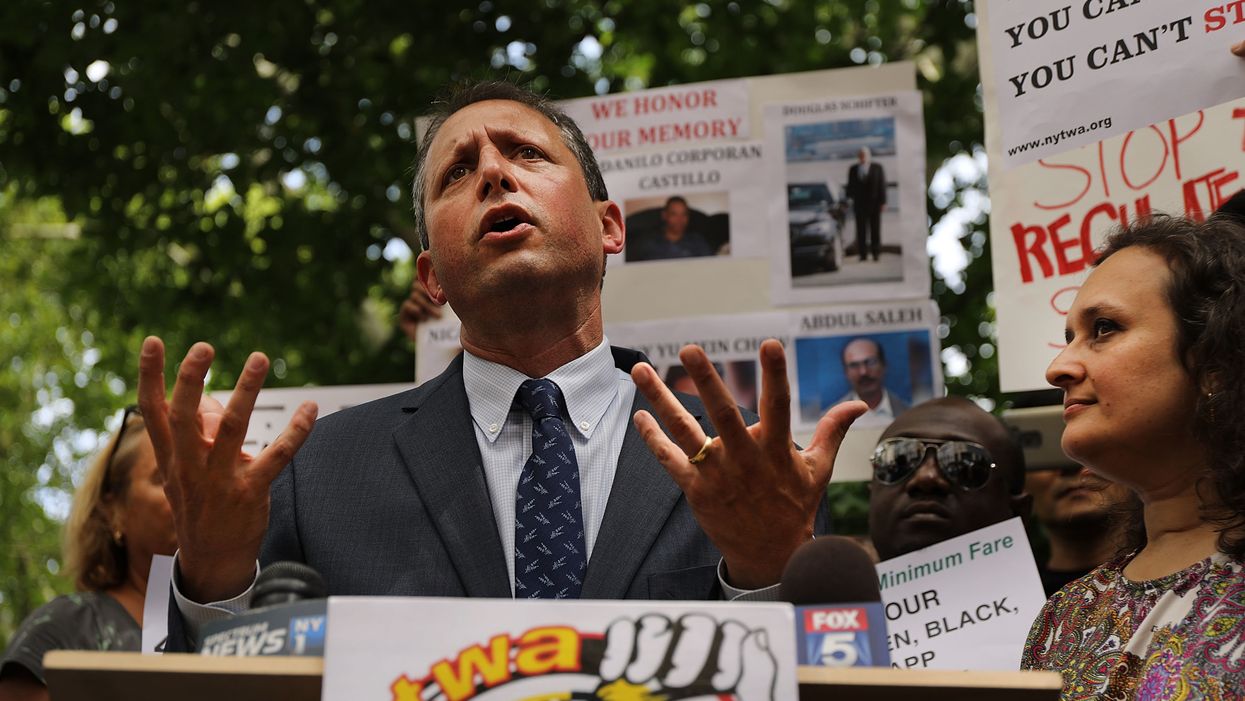New York City's approval of ranked-choice voting was one of the year's biggest wins for democracy reformers. But the million-dollar push for the ballot measure was fueled by one of the institutions most reviled in "good governance" circles: dark-money groups.
Now one prominent lawmaker, with a proven record of tightening campaign finance rules in the nation's biggest city, has plans to prevent such an irony in the future.
City Councilman Brad Lander is readying legislation to expand the current disclosure requirements for donations in local elections to include ballot proposals. The transparency rules now mandate donor disclosures only for political messaging related to candidates. But that law's enactment was spearheaded five years ago by Lander, and the Brooklyn Democrat says it's time to close a loophole he left behind.
The most prominent item on the November ballot was a proposal to use the ranked-choice system, also known as the instant runoff, in primaries and special elections starting with the mayor's race next year. It was approved with 74 percent of the vote.
The Committee for Ranked Choice Voting NYC, the good-governance conglomerate responsible for most messaging on the issue, spent $986,017 on digital, television and direct mail advertising — capped in the campaign's final weeks with TV spots featuring Academy Award-winning actor Michael Douglas.
But none of these spots were required to include "paid for by" information, leaving the moneyed proponents of so-called RCV a mystery to most. Those curious enough to seek further information could learn how much the committee spent — but not where the money came from — using the city government's "Follow the Money" online portal.
Learning the identity of the donors required navigating the state Board of Elections website. It shows the committee received almost $2 million in contributions — 95 percent of which came from just five donors. The Action Now Initiative gave $1 million, but understanding the names behind that group requires another trip down the disclosure rabbit hole. Another $500,000 came from James and Kathryn Murdoch, a son and daughter-in-law of media mogul Rupert Murdoch who have recently signaled a willingness to invest big in democracy reform.
Lander's vision is to make it much easier to follow the money spent on local ballot measures by expanding his own legislation: In 2014, he pushed through a bill that created the first public disclosure of groups spending to influence campaigns for local office. The bill was enacted in response to the big-money influences seen a year earlier in the first mayoral race following the Supreme Court's Citizen United ruling, which allowed for unlimited spending in elections. Bill de Blasio was ultimately elected after an intense and expensive five-way Democratic primary.
Lander's vow to write a new bill came in recent days, after the NYC Campaign Finance Board asked the City Council to move such legislation.
"New York City has the country's strongest disclosure requirements and resources for independent expenditures. Unfortunately, when it comes to ballot proposals, our law has a blind spot," said Amy Loprest, the board's executive director.
Under the Lander proposal, donors to political groups would be listed on the city's "Follow the Money" portal, cutting out the need to visit two separate websites to reveal this information. And ballot measure ads would have to name the top three donors and direct voters to their website for more information.




















Trump & Hegseth gave Mark Kelly a huge 2028 gift